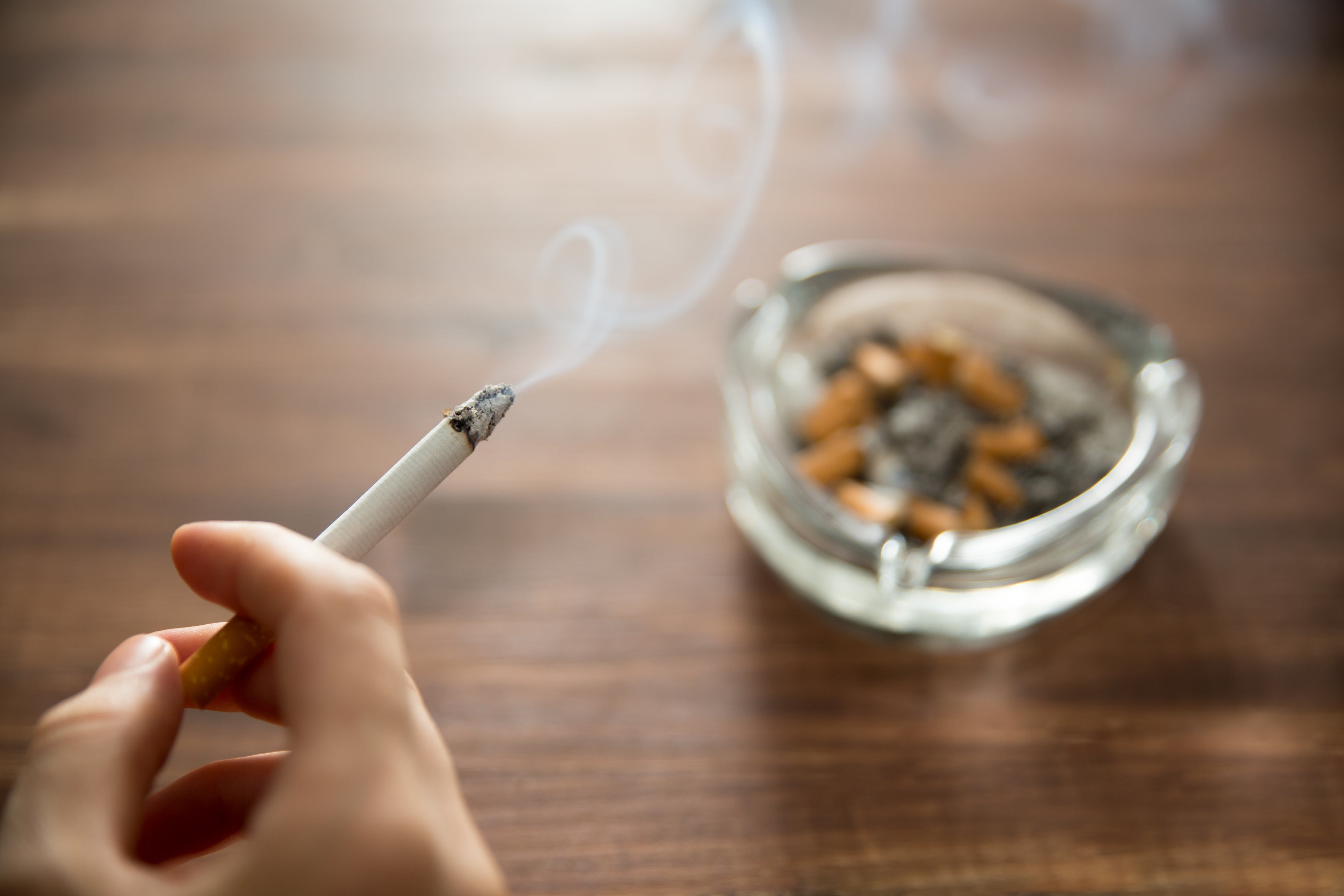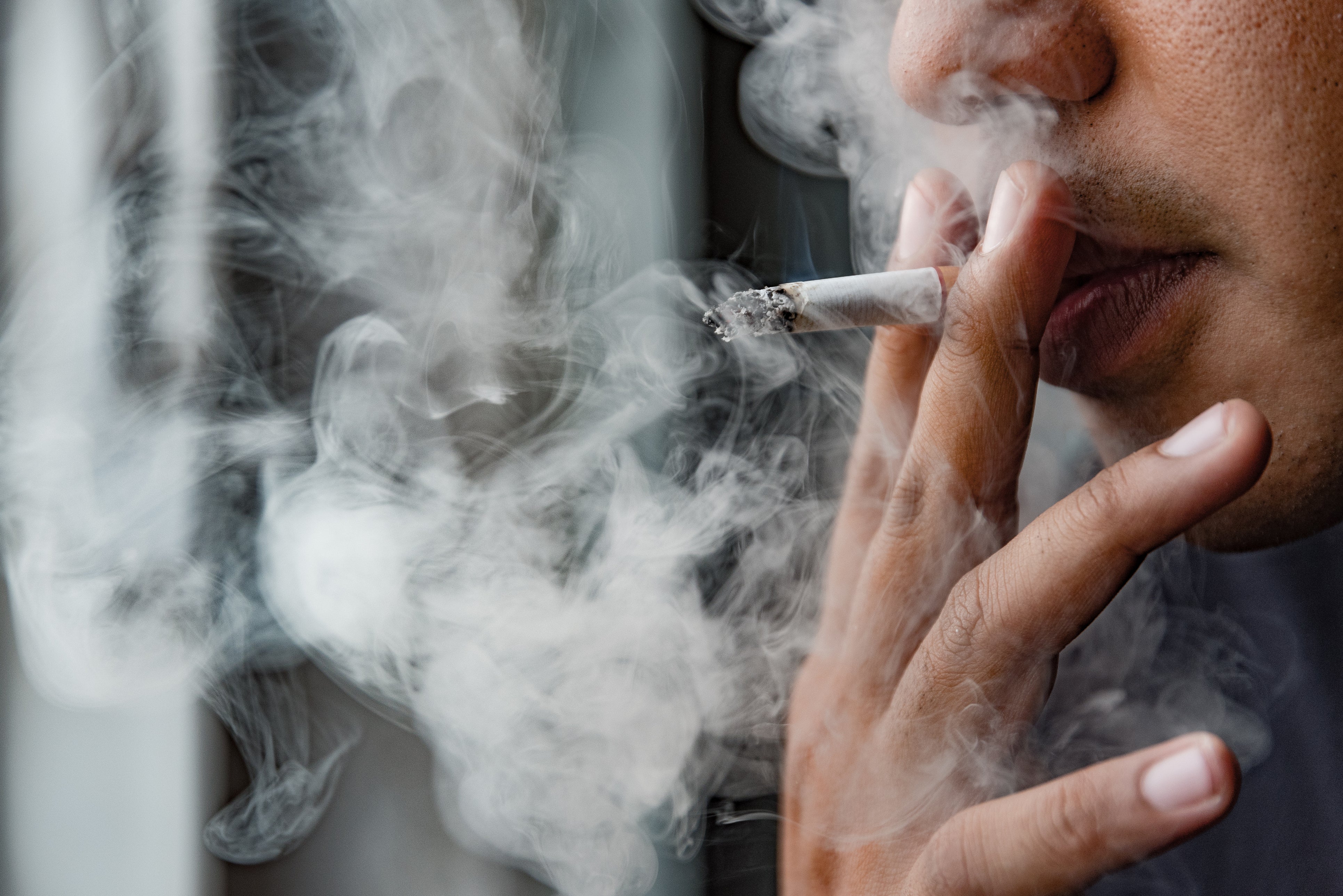A million workers are still exposed to second-hand smoke, and this is dangerous
Research shows around one million people still regularly exposed to second-hand smoke

Your support helps us to tell the story
From reproductive rights to climate change to Big Tech, The Independent is on the ground when the story is developing. Whether it's investigating the financials of Elon Musk's pro-Trump PAC or producing our latest documentary, 'The A Word', which shines a light on the American women fighting for reproductive rights, we know how important it is to parse out the facts from the messaging.
At such a critical moment in US history, we need reporters on the ground. Your donation allows us to keep sending journalists to speak to both sides of the story.
The Independent is trusted by Americans across the entire political spectrum. And unlike many other quality news outlets, we choose not to lock Americans out of our reporting and analysis with paywalls. We believe quality journalism should be available to everyone, paid for by those who can afford it.
Your support makes all the difference.Imagine someone walking into a cafe, sitting down at a table and lighting up a cigarette. In the UK – and other countries where smoking in indoor public places is banned – that would be almost unthinkable. In the 15 years since smoking bans came into effect across Britain, smoking inside has gone from a fact of life to an aberration, and the nation’s health is all the better for it.
Strokes, heart problems and asthma attacks have all fallen since the bans were introduced, particularly among people who used to spend their working lives in smoky environments. However, smoking isn’t banned in all workplaces and lots of workers still breathe in smoke when they’re doing their jobs, such as tradespeople, care workers and meter readers.
In our recent study, we estimated that around one million UK workers are regularly exposed to second-hand smoke while they work. Of those, the most severely affected included home care workers – nurses, carers and other professionals who provide help at home for those who need it most. In the course of our research, we’ve seen these workers exposed to levels of smoke higher than those you’d find during smog in highly polluted cities like Delhi.
Those high levels of second-hand smoke could be a real problem. Even short periods of exposure to high levels of small particulates (like those in second-hand smoke) have been linked to heart attacks and other circulatory problems in vulnerable people, as well as asthma attacks. Over the longer term, regular exposure to smoke could increase the risk of heart disease, lung problems and even stroke.
This seems like a poor reward for someone who spends their life caring for others. That’s particularly true when we consider that care workers are often badly paid, coming from sections of society that already suffer health inequalities and experience shorter lifespans.
Policies to protect
Many care organisations, including the NHS, have policies designed to address these problems. Often this involves asking clients not to smoke for an hour before a care worker attends their home.
How we view smoking in the presence of children is changing. In the future, we might see smoking in the home as unacceptable, given the toxic chemicals it releases into the air
However, we know from our previous research that second-hand smoke can remain in a home at harmful levels for more than five hours after a cigarette is smoked – one hour isn’t enough to clear the air. And even if it were, our research suggests that this guidance isn’t being followed, with smokers lighting up even when workers are in their homes.
There are serious concerns about the health of these workers. But there is a tension at the heart of this problem: when your workplace is someone else’s home, whose rights come first? Smokers may choose to smoke at home, particularly those with existing health and mobility issues (who are more likely to receive care) where getting outside is difficult.
It’s not good for their health (and certainly not for anyone else who lives with them) but it’s their choice and their right. That said, if your job requires you to enter an environment and accept any health risks that come with it, don’t you deserve clean air like any other worker?
There’s no clear, universally acceptable way to balance these two positions. But we need to think clearly about risks and rights to find a way forward between these two competing ideas: the right to choose what you do in your own home versus the right of everyone to clean air at work.
The pandemic may have changed which solutions people find acceptable. For instance, people are now fairly comfortable wearing masks indoors. It’s possible that wearing high-quality N95 masks could reduce the number of smoke particles that workers breathe in to a level that leads to fewer health problems.
But this is difficult to do. Many of the thousands of chemicals in second-hand smoke can’t be filtered out as they’re gases rather than solid particles, so the World Health Organisation says that there’s no such thing as a safe level of tobacco smoke. Still, for short visits, this might bring the risk down to a more acceptable level.
Other Covid-related changes might include a better understanding of the effect of ventilation. As it’s become better understood that the virus is airborne, improving building ventilation has risen up the agenda. That can be difficult in older houses, but some studies have shown success using air cleaners to combat small particles in homes – but these devices face some of the same problems as masks and do little to remove the harmful gases produced by smoking.

Calling time on smoking
If this doesn’t work, we might need a more drastic solution. Given the serious health effects of second-hand smoke exposure and the estimated 800,000 premature deaths it causes globally each year, society might choose to reject the idea of a “right to smoke in the home” entirely.
After all, smoking isn’t essential even for smokers, with nicotine replacement products and e-cigarettes widely (and cheaply) available, and smokers in the UK are already required to keep private cars smoke-free when children are travelling. How we view smoking in the presence of children is changing. In the future, we might see smoking in the home as unacceptable, given the toxic chemicals it releases into the air.
Smoke-free policies not only benefit those exposed to second-hand smoke – often they lead to smokers kicking the habit. Could all homes go smoke-free one day? That wouldn’t just benefit care workers, but also the one in nine Scottish children currently living in smoky homes. It’s difficult to imagine – but so were smoke-free pubs less than two decades ago.
Ruaraidh Dobson is a research fellow at the Institute for Social Marketing, University of Stirling. Sean Semple is an associate professor at the Institute for Social Marketing, University of Stirling. This article first appeared on The Conversation.
Join our commenting forum
Join thought-provoking conversations, follow other Independent readers and see their replies
Comments